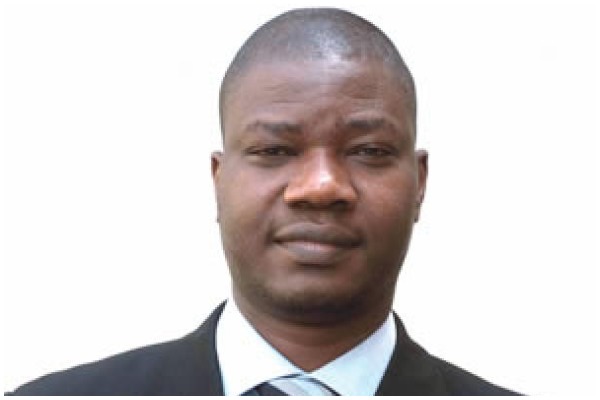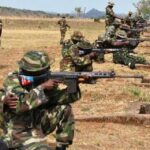
There are only two Catholic priests I respect their views on politics and governance in Nigeria. They are Bishop Matthew Kukah and Rev Fr George Ehusani. These two clerics are fiery advocates for justice, human rights and good governance. They speak truth to power. They are the conscience of the nation. While Fr. Ehusani heads Lux Terra Leadership Foundation, Kukah is the Catholic Bishop of Sokoto Diocese. Kukah was in his element again last Sunday when he delivered a five-page Christmas message which was very critical of the incumbent regime in Nigeria. His 22-paragraph homily titled “Nigeria: Let us turn a new page” has something in it for everyone. Expectedly, it has been generating a lot of furore in the public space.
I was a member of the three-man panel of discussants that reviewed the Bishop’s speech on Politics Today anchored by award-winning journalist, Seun Okinbaloye on Channels TV last Monday, December 26, 2022. Who’s Kukah? Kellogg Institute for International Studies, University of Notre Dame has this to say about him, “Bishop Kukah of the Catholic Diocese of Sokoto, Nigeria, is a tireless advocate for justice, democracy, and human development. Priest and political scientist, he has served as a member of Nigeria’s Truth Commission, as secretary of the National Political Reform Conference for Nigeria, and as a member of Nigeria’s Electoral Reform Committee. He played an important role in negotiating an end to the Shell-Ogoni conflict in the Niger Delta region. A champion of respectful Christian-Muslim relations, Kukah served as chairman of the Committee on Interreligious Dialogue in Nigeria and West Africa and was appointed by Pope Benedict XVI as a member of the Pontifical Council for Interreligious Dialogue.”
Born in Anchuna, Kaduna State on August 31, 1952, this 70-year-old priest has been tackling successive political leadership of Nigeria to live up to the demands of their offices and deliver good governance to Nigerians. He founded The Kukah Centre which is a Nigeria-based policy research institute. The centre treats political leadership as a collaborative exercise that requires multiple governance structures at various levels – individuals, households, small businesses, the organised private sector, NGOs and government. The centre and its founder played a key role in midwifing the National Peace Committee which has been advocating for peaceful elections by making presidential and governorship candidates to sign Peace Accord ahead of every election in Nigeria since 2015.
Like Apostle Paul who wrote many epistles in the Holy Bible, Kukah loves to write. Perhaps his doctorate in political science whetted his appetite for leadership and governance. At a point, he wrote column for The Guardian newspaper. Now to the gist of his Christmas homily, Kukah, in paragraph three, said inter alia, “This is the last Christmas for this present government’s regime. Let us all do our duty as we have a chance to choose new leaders. Do not be cynical. God is not done with us. Choose leaders who, in your view will love us, will care for us, will cry with us, will laugh with us. Look ahead and do not look back.”
He opined that “although the responses to my messages suggest that, generally, Nigerians listen to our voices in the wilderness. However, the deliberate culture of pauperisation and destitution of our people continues. So, we need a change of strategy so that we can turn a new page. We need a new strategy to confront those who sit on the throne of power in arrogance and are determined to reduce our country to a jungle. We need a new strategy that separates men and women of honour from those who have chosen dishonour. We need a new strategy that provides a clearer moral guide for ordinary citizens who, based on the moral strength of culture and religion, are seeking to build a good society, even if with straws. We need to stand up and stand firm. We need new mechanisms for saying no to the violence of governance.”
Kukah also spoke of the emergence of a caste system in Nigeria. “A caste system has emerged in our country. It has consolidated its hold and blunted the cutting edge of all institutions. A majority of its children are swimming against the tide for survival with no support while the other caste smiles in the comfort of their life jackets. There is no gainsaying this fact! The Bishop asked rhetorically, “Who would have imagined, after listening to the campaign speeches ahead of the 2015 elections, the new president’s inaugural speech, that we will be so worse off than we were? Yet, it could get even worse if we do not pause and pause seriously.”
“For example, who will quarrel with the fact that our glory has departed as a country? Where is our voice respected today even within the African continent which looks up to us for leadership?…… Is being the poverty capital of the world and one of the most violent states in the world an achievement? And our suffocating internal and international debts? And you do not think our glory has departed? We failed to qualify for the World Cup, our Falcons lost their title, our seemingly invincible champions, Anthony Joshua, Kamuru Usman and Israel Adesanya, have all lost their titles. Our citadels of learning lie prostrate. When will glory return?” Kukah asked. He made a passionate appeal to all Nigerians who have been given custody of our public trust and commonwealth to rise up to the duties for which they have been so handsomely rewarded. Those holding elective office must appreciate that they have not been entrusted with the keys of our commonwealth just so they can turn it into their private money machines.
Kukah was on point when he said to the president that “It is sad that despite your lofty promises, you are leaving us far more vulnerable than when you came, that the corruption we thought would be fought has become a leviathan and sadly, a consequence of a government marked by nepotism.” He went further, “Nepotism is a cancer which has consumed us in the last few years. We have paid the price of nepotism entrusting power into the hands of mediocre who operate as a cult and see power purely as an extension of the family heirloom.” This is spot on!
It wasn’t all knocks for the president; Kukah did applaud the Buhari on a number of things. He said, “I want to commend you, however, for the efforts you have made in the area of infrastructure. There has been a measurable improvement in the landscape, especially in the area of roads. I commend you for the efforts and honesty of seeking to end malfeasance in the electoral processes and your courageous support for the Independent National Electoral Commission.”
It takes a lot of courage to criticise leadership at any tier and arm of government. This is because it can be misconstrued. However, holding the government to account is a constitutional responsibility. Truth is that the fiery Bishop has once again spoken truth to power, hoping for things to change for the better and urging Nigerians to engage and participate in the electoral process. I enjoin my compatriots to heed the cleric’s advice by enthroning better leadership at all tiers of government next year and to demand good governance.
Twitter: @jideojong





